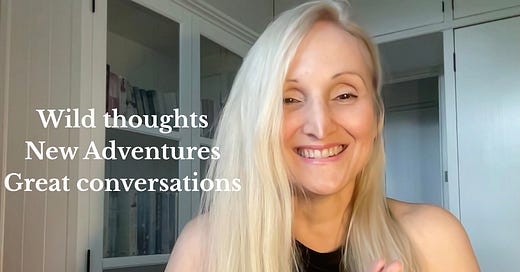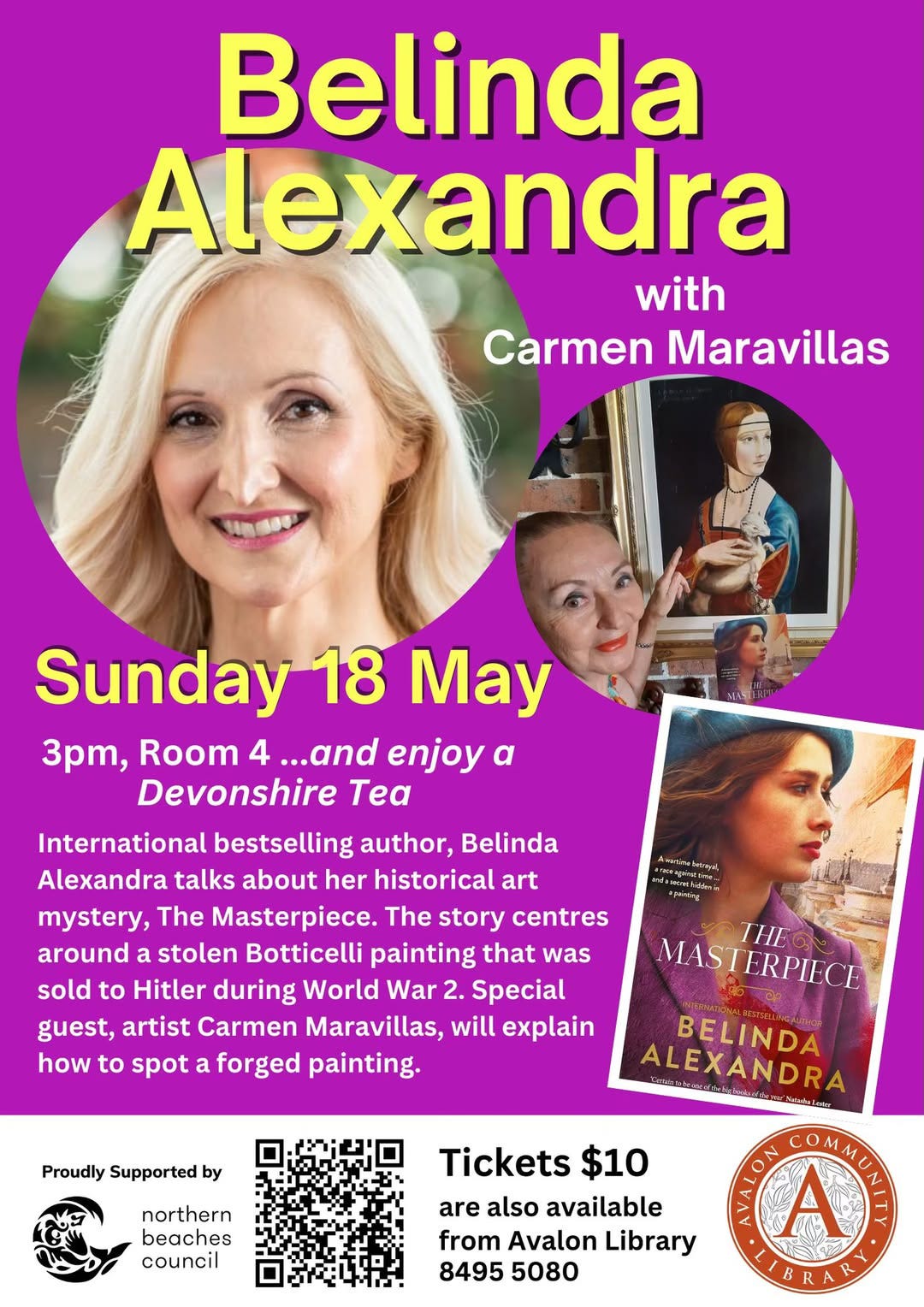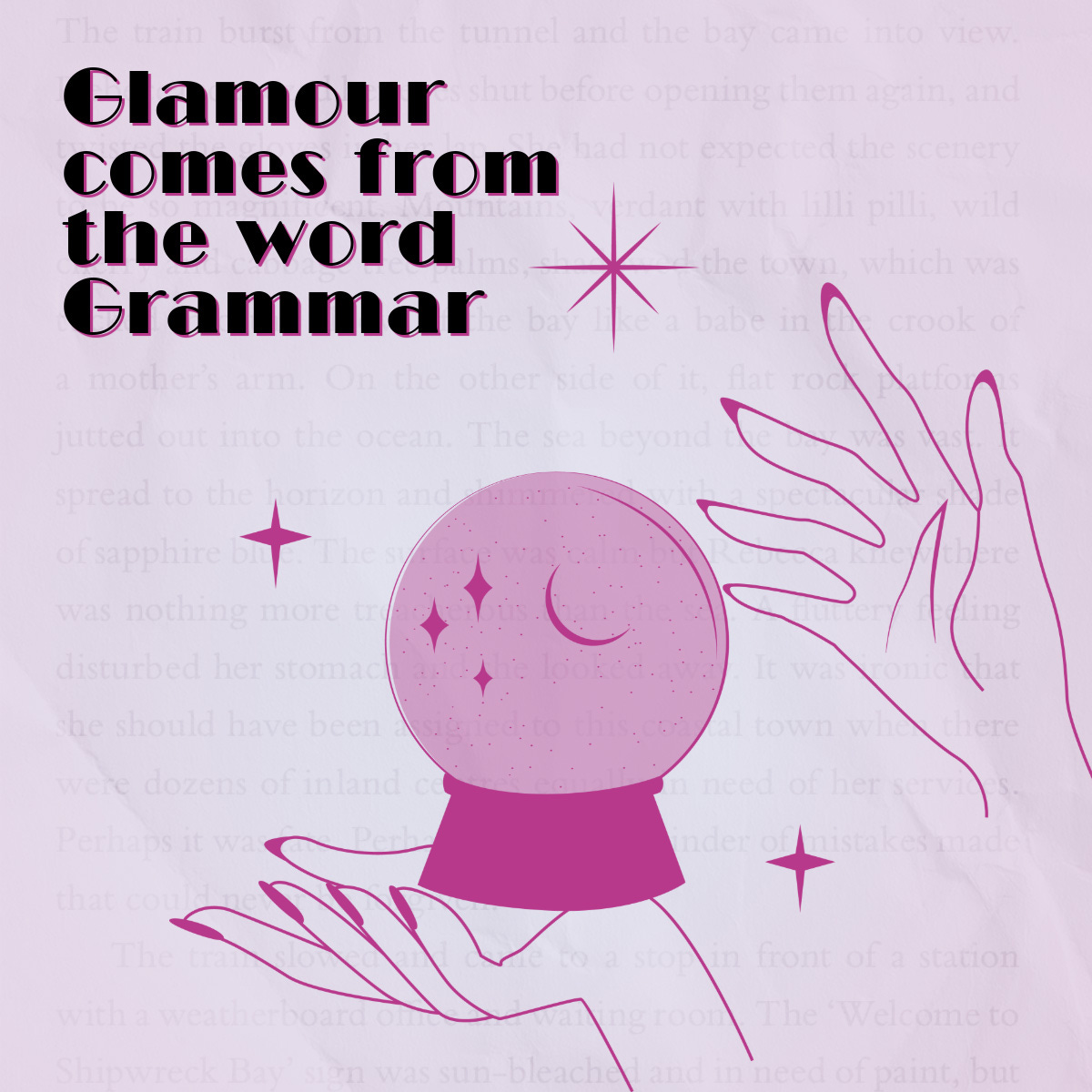Hi Everyone,
Well, big news since my last newsletter: I finished my manuscript for The Italian Correspondent. It’s with my lovely publisher, Anna Valdinger at Harpercollins, who will give me feedback on it before it goes into the editing process. I don’t want to say too much about it just yet, in case things change during those edits, but it is set in Italy during the period of ‘Il Boom’ in the 1950s when the country was trying to forget Mussolini and Fascism and reinvent itself as the country of style. Think Emilio Pucci, Vespa and Roman Holiday. The main character is a former war correspondent, now a Vogue writer, who is haunted by the memories of the three men she has loved most in her life.
For those of you who loved Tuscan Rose, there is a connection!
I’m now in the process of starting my next novel which takes me in an entirely new direction.
It is inspired by the life of Élisabeth Vigée Le Brun (1755-1842) the portrait painter to Marie Antoinette and an eyewitness to the turbulent time of the French Revolution. I’ve always been fascinated by this period in French history and Élisabeth was such a remarkable woman and artist. I am loving immersing myself in this time period.
I’ll be sharing more about The Italian Correspondent and Élisabeth Vigée Le Brun soon!
GREAT CONVERSATIONS
I am a person who craves great conversations the same way some people crave coffee. The motivation for writing Wild Lavender was largely to live in my imagination in Paris in the 1920s. I often fantasise what it might have been like to write in a garret during the day, then in the evening meet the greatest minds, talents and personalities of the era in a café. People like Marie Laurencin, Kay Boyle, Kiki, Natalia Goncharova, F.Scott Fitzgerald, Pablo Picasso and Ernest Hemingway to name just a few.
I’ve never been very good at chitchat. I also don’t like ‘a good gossip’. I know a lot of people find gossiping a harmless stress reliever, but it leaves me feeling ick. Perhaps it’s like smoking – it relieves tension in the short-term, but over the long-term results in a small, unkind mind.
What makes a great conversation in my opinion? It’s where I learn something that makes me feel excited, curious, inspired and connected with the person I am conversing with.
We are constantly told that human beings need connection, and that without it we suffer mental and physical consequences so grave we could die from them. But if connection comes from how we communicate with each other, humanity is in dire straits. The way we are currently communicating is creating division, discord and disharmony. Everyone is talking and sharing their opinions, but no-one is really listening.
I recently read a wonderful book by Pulitzer Prize winning writer, Charles Duhigg. Supercommunicators: How to Unlock the Secret Language of Connection. In it he shares the story of gun-control advocates and pro-gun rights supporters being brought together by trained communication facilitators. At first, the two groups seemed diametrically opposed to each other. Furthermore, each side was highly suspicious of the other and was prone to describing the opposing group as ‘zealots’, ‘idiots’ or ‘ignorant’. However, as the facilitators taught them to use the skills of active listening, many were shocked to discover that both groups essentially wanted the same thing: To keep their loved ones safe. Once they understood that, the two groups showed much more empathy and compassion for each other. They may not have agreed about the best way to achieve safety, but at least they could respect each other better as human beings.
The secret to this turnaround was focusing on what connected the group rather than what divided it. Duhigg says that we currently indulge in very limited surface conversations where we assume a lot about the other person, especially if they appear to hold different beliefs to us. He suggests that when we meet someone for the first time to make it a habit to ask them more interesting questions. (And these don’t have be invasive). For example, should you meet someone at a party and discover they are a doctor, don’t continue with surface level questions about which hospital they practice at or where they live. Ask them why they decided to become a doctor and what do they find most interesting about their profession. Instead of the usual awkwardness of party small talk, the conversation is much more likely to become interesting, lively and more rewarding for both participants.
Another great piece of advice Duhigg gives is to understand what kind of conversation you are having from the start, whether that’s with a co-worker or your partner.
Practical Conversations: Problem-solving, making plans, and exchanging information.
Emotional Conversations: Sharing feelings, seeking understanding, and wanting to be heard.
Social Conversations: These revolve around identity, relationships, and how we interact with others and society.
We need to recognise the type of conversation someone is initiating with us and match it to avoid misunderstandings and unnecessary conflict.
For instance, I am an action-orientated, fix-it kind of person. If a friend comes to me with complaints about their boss or spouse, I will very likely pull out my repertoire of suggestions and solutions. If my friend simply wanted to vent, my reaction may make her feel unheard. I, on the other hand, will possibly become annoyed that she dumped all her misery on me without any intention to take action to change her situation.
But if I understand from the beginning my friend is seeking an emotional conversation, I can keep my suggestions to myself. Interestingly, when I have tried this out what often starts out as an emotional conversation naturally progresses to a practical one once my friend feels heard. This results in a much more satisfying conversation for the both of us.
If you aren’t sure what kind of conversation you are having, Duhigg suggests that you clarify it. ‘Do you want to talk about your feelings or are you looking for practical solutions? I want to make sure I’m responding to you with what you need from me.’
Supercommunicators is a great book. Full of interesting, helpful and practical tips for having better, more connected, conversations. I highly recommend it.
Belinda XX
UPCOMING EVENT
Like to stay in touch? Be sure to subscribe:
This newsletter comes out monthly, but I also have another newsletter, The Intentionalist, that I write with my friend Kelly Morton. It comes out every Friday. Check it out here:









French Revolution! Can’t wait Belinda 🙌🏼